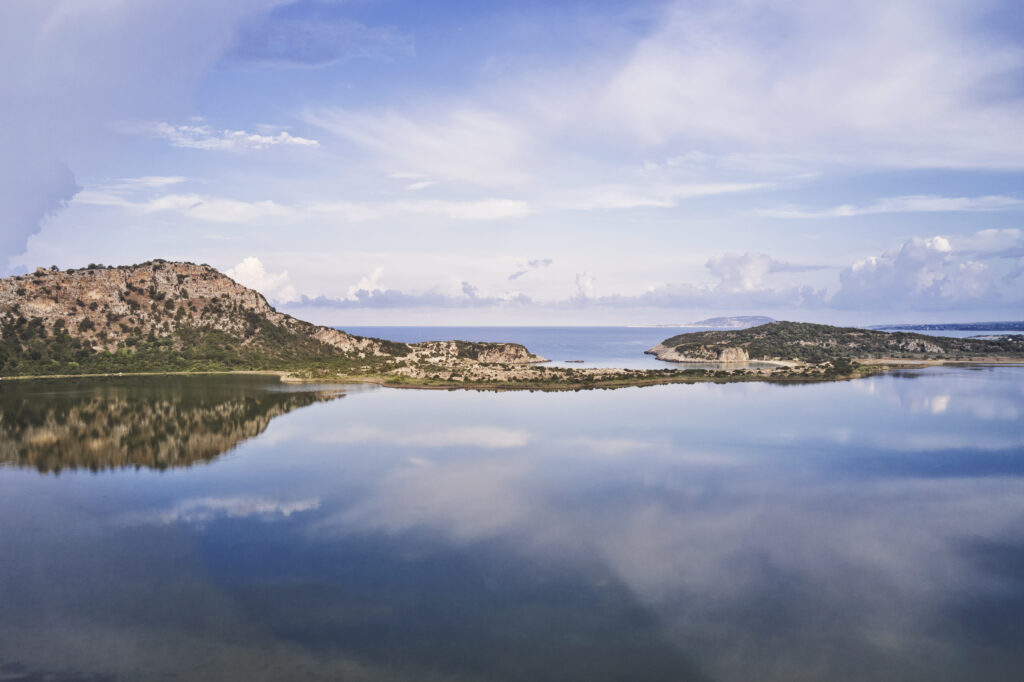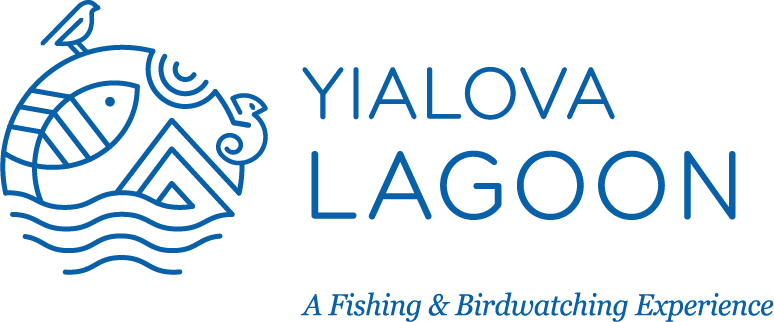The entire region is protected, with approximately 48% of the area occupied by the circular Bay of Navarino. The entrance of the bay is located to the south of the islet of Pylos (also known as Tsichli-baba), which is situated opposite the town of the same name.
Yialova Lagoon is located a little further to the north, with the adjacent beach of Voidokilia. The entire region comprises important habitats and endangered species of flora and fauna and is part of the European NATURA 2000 network.
In addition to its ecological importance, the zone is a continual source of fascination for both local and international visitors to the area, who come to savour the grandeur of nature.
To the west, Sfaktiria Island extends parallel to the coast and across the mouth of the Bay of Navarino. This island is covered with dense and rare flora and is also a refuge for many birds of prey. The strategic position of Sfaktiria contributed to the fact that it was the scene of bloody conflicts both in ancient times and during the Ottoman occupation.

Yialova Lagoon, which is one of the most important wetlands in Greece and Europe, is located in the northwest of the region and extends between the settlement of the same name and the Bay of Voidokilia. Also known as Divari, from the Latin vivarium meaning “fish farm”, the area has been designated as a Special Protection Area (code GR2550008) and as a Site of Community Importance (code GR2550004). In addition, it is a Wildlife Sanctuary and one of the Important Bird Areas in Greece. It is the first stop of migratory birds from Africa and also hosts a significant number of mammals, reptiles, amphibians and fish. The extremely rare and endangered African chameleon is arguably one of the most important species found at the lagoon.
The company aims to revive the lagoon by implementing modern and sustainable practices. The ultimate goal is to achieve optimal management of this unique aquatic ecosystem and to restore and enhance the fish population.
The environmental aspect of fishing adopted by the company fulfils the belief of ichthyologists in the best possible way. “Lagoons must continue to be fished because it is in this way that they are renewed,” asserts Ioannis Leonardos, Professor of Animal Biology specialised in Ichthyology at the Department of Biological Applications and Technology of the University of Ioannina.
